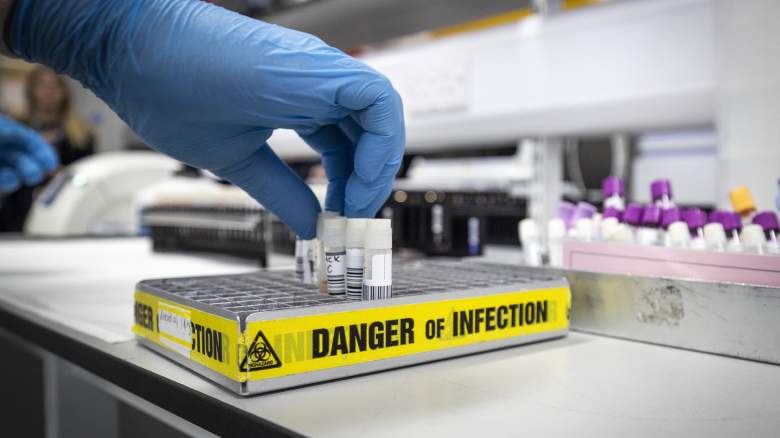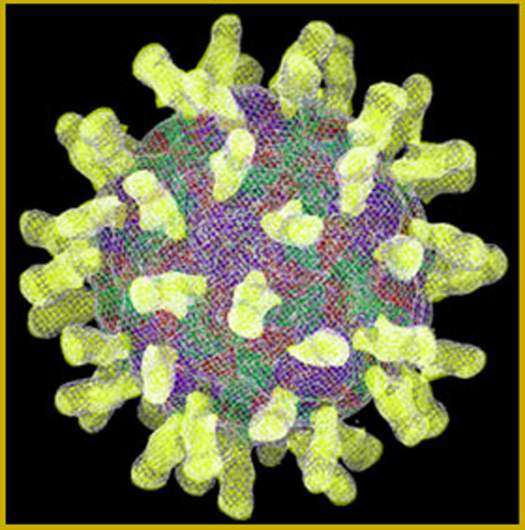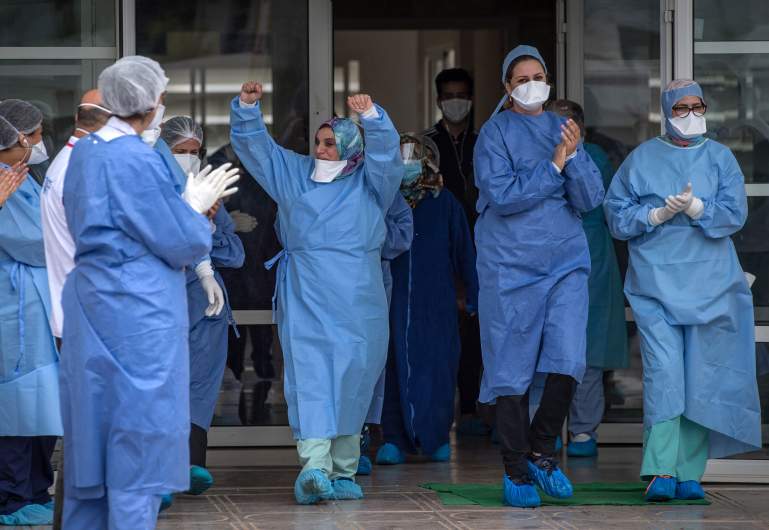
Getty Ongoing research on COVID-19 has found some immunity in people that have had common colds, which is a type of coronavirus.
One of the most confounding issues about coronavirus is the lack of established knowledge about the disease and how it affects humans. Whether or not people build immunity to the virus after recovery has been one of the most important unknowns because immunity and a vaccine are what most people are banking on as a means to end the coronavirus pandemic.
In a study published in the journal, Cell, on May 7, researchers said they found a link between the way T cells reacted to novel coronavirus in those who had already been infected with other kinds of coronaviruses. They looked at the T cells in 11 blood samples from people who had been infected by some type of coronavirus in the last two years, including the common cold.
The authors of the study out of La Jolla Institute for Immunology wrote, “Importantly, we detected SARS-CoV-2−reactive cells in 40 to 60% of unexposed individuals, suggesting cross-reactive T cell recognition between circulating ‘common cold’ coronaviruses and SARS-CoV-2.”
“T cells are like soldiers who search out and destroy the targeted invaders,” according to Medicine Net. The findings may help explain why some people who are infected by COVID-19 have less severe reactions or even no symptoms at all.
Viral immunologist Steven Varga of the University of Iowa told the journal, Science, that the findings suggest, “one reason that a large chunk of the population may be able to deal with the virus is that we may have some small residual immunity from our exposure to common cold viruses.”
Researchers Say it’s Still Not Known How This Type of Immunity Affects Clinical Outcomes

GettyThis computer-simulated model, developed by Purdue University researchers, shows the receptors of the common cold virus, rhinovirus 16, attach to the outer protein shell of the virus.
There are seven kinds of coronavirus and four of those are variations of the common cold. According to the Centers for Disease Control and Prevention, on average adults get two to three colds per year. With colds being so common, these findings would lend themselves to everyone having some immunity against the disease.
Still, with nearly 5 million confirmed cases worldwide coupled with the likelihood that most people get colds at some point, just having had a cold in life clearly will not protect everyone. However, the researchers aren’t making that claim, only that it may be part of why the disease affects people so differently.
According to the authors of the Jolla Institute study:
This may be reflective of some degree of crossreactive, preexisting immunity to SARSCoV-2 in some, but not all, individuals. Whether this immunity is relevant in influencing clinical outcomes is unknown — and cannot be known without T cell measurements before and after SARSCoV-2 infection of individuals — but it is tempting to speculate that the crossreactive CD4+T cells may be of value in protective immunity, based on SARS mouse models.
Because some patients can have COVID-19 and be asymptomatic while others die from the same disease, researchers are still working to learn why the virus infects people so differently. Hospitalizations and severe complications tend to affect older people and those with underlying conditions at a much higher rate, but that’s not a hard-fast rule.
Broadway star Nick Cordero, 41, endured a 42-day induced coma while ill with COVID-19 and had to have a leg amputated due to complications from blood clots. According to Heavy’s previous reporting, his wife said he had no underlying conditions.
In another case that goes against the statistical findings that the elderly population are the most likely to die from the disease, CNN reported that a 108-year-old New Jersey woman recovered from her COVID-19 infection.
The Study Found That People Who Recovered From COVID-19 Built Immunity

GettyMembers of the medical staff rejoice as patients who recovered from the Covid-19 disease caused by the novel coronavirus (behind them), leave a hospital in the city of Sale, north of the Moroccan capital Rabat, on April 12, 2020.
The Jolla Institute study also showed strong immunity in 20 patients who had recovered from COVID-19. One of the researchers, Alessandro Sette, a professor in the Center for Infectious Disease and Vaccine Research told Science Daily, “If we had seen only marginal immune responses, we would have been concerned, but what we see is a very robust T cell response against the spike protein, which is the target of most ongoing COVID-19 efforts, as well as other viral proteins. These findings are really good news for vaccine development.”
While it has been reported that some people get re-infected with COVID-19 after being cleared, which would mean people are not building up immunity, according to the Journal of the American Medical Association, “to date, no human reinfections with SARS-CoV-2 have been confirmed,” That article was published May 11.
The JAMA authors go on to say that it’s possible that reinfection happens, it just hasn’t been proven. Alternately, they say the cases in which people are said to be reinfected could be because there is prolonged viral shedding or that the way the tests are done vary, giving conflicting results.
JAMA researchers concluded, “Data to effectively differentiate these possibilities are lacking, highlighting an area of substantial uncertainty.”
READ NEXT: WATCH: Nancy Pelosi Calls Trump ‘Morbidly Obese’ During CNN Interview
